CPFF announces 2022-2023 Robert Davidson Fellowships
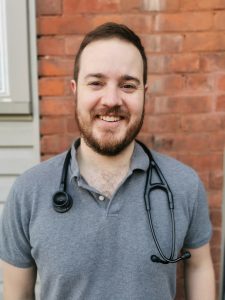
Advancing research and developing more respiratory specialists to improve care, as well as expand access to care, for people living with pulmonary fibrosis (PF) are the aims of CPFF’s investment in clinical research fellowships. This year’s four fellowship recipients are sure to have an impact on both expanding our knowledge of PF and further developing their clinical skills to best serve those with the disease.
Each of the fellows are respirologists and will spend at least 75 per cent of their time conducting research and the balance of their time seeing patients, as well as teaching and taking part in other work in their clinics and collaborating with specialists across the country.
Congratulations to the 2022-2023 CPFF Robert Davidson Fellows.
Dr. Alec Campbell
Working with Dr. Chris Ryerson and Scott Tebbutt, PhD, at the University of British Columbia, Dr. Campbell will care for ILD patients at St. Paul’s Hospital in Vancouver, in addition to conducting his research. He will be examining the molecular interactions within individual cells, a technique known as single-cell RNA-sequencing (scRNAseq), to see if there are markers in the blood that could help diagnose ILD earlier, more reliably, and more safely than is currently possible.
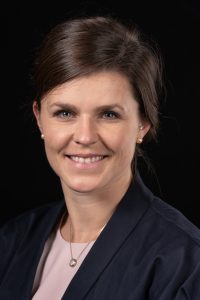
Dr. Amanda Grant-Orser
Under the supervision of Dr. Charlene Fell and Dr. Kerri Johannson, Dr. Grant-Orser is returning for the second year of her fellowship, treating patients at the University of Calgary’s ILD Clinic located at South Health Campus. She has several endeavours underway. These include the following:
Perceptions of Genetic Testing: A Mixed-Methods Study of Patients with Pulmonary Fibrosis and their First-degree Relatives, which investigates ILD patients’ and their first-degree relatives’ thoughts about genetic testing for ILD. This study will be published soon in the Annals of ATS. We’ll inform you of the results when it is published.
She is also currently recruiting patients for a study comparing ILD patients’ own assessment of their clinical status to their physician’s assessment.
As part of a national collaborative project examining the Canadian Registry for Pulmonary Fibrosis (CARE-PF) database, Dr. Grant-Orser’s research will focus on the role of bronchoscopy in diagnosing fibrotic ILD.
Finally, she will also be working on the Alberta-ILD Study Status, describing the epidemiology of ILD in Alberta; defining the incidence and prevalence of disease, where patients live and receive care, what diagnostic and longitudinal testing they undergo specific to ILD care, and ILD-specific treatments prescribed.
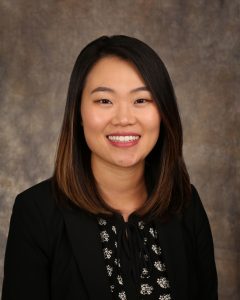
Dr. Bohyung Min
Working with Drs. Charlene Fell and Kerri Johannson, Dr. Min will care for patients at the University of Calgary (U of C) ILD clinic. She will also pursue an MSc in clinical epidemiology at U of C.
Her primary research study will investigate the relationship between the complete blood count (CBC) test and progression of fibrosing ILD to clarify its potential role as a simple and effective biomarker. This may help identify individuals who are at higher risk of disease progression and who may benefit from early treatment, close surveillance, or further diagnostic investigation.
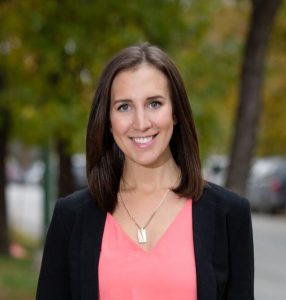
Dr. Leigh Minuk
Drs. Shane Shapera and Jolene Fisher at University Health Network (UHN), Toronto, will guide and mentor Dr. Leigh Minuk as she undertakes clinical work at Toronto General Hospital’s ILD clinic and her ILD research. Dr. Minuk will also pursue an MSc in clinical epidemiology at McMaster University.
Her main research study involves the development of a “staging” system to identify fibrosing ILD patients at high risk for disease progression and/or mortality. Such a system will help guide both therapy decisions such as when to begin anti-fibrotic medication and/or lung transplantation assessment, as well as, patient counselling.
You can read more about the CPFF Robert Davidson Fellowship, as well as information about previous fellows and their research projects in the Research section of the CPFF website.
Great progress made in expanding access to nintedanib

The Canadian Pulmonary Fibrosis Foundation (CPFF) is very pleased to report that more than half of our provinces have expanded access to nintedanib (Ofev) and are now reimbursing people with fibrosing interstitial lung diseases (ILDs) for the medication. Previously, the drug was only covered for those with idiopathic pulmonary fibrosis (IPF).
Alberta and Quebec led the pack, with Newfoundland and Labrador becoming the first of the Atlantic provinces to approve expanded coverage. Ontario and New Brunswick followed a few days later and Manitoba will begin coverage on June 1. In addition, the Non-Insured Health Benefits (NIHB) program has expanded its coverage, which includes registered First Nations people and eligible Inuk (Inuit).
Now is the time for the other provinces and territories to list and fully reimburse the use of nintedanib (Ofev) for all chronic pulmonary fibrosing ILDs. If you live outside of the provinces or territories already covering nintedanib (listed above), please join us by sending a letter to your MPP/MLA. It is easier than ever to do so. Click on this link and complete the online submission – the email message is already done for you – and your call for action will be sent directly to your provincial or territorial representative automatically. No need to look up your representative’s email address.
By taking this simple action, you can make a huge difference to those currently not able to access anti-fibrotic medications in their province or territory. Please help them.
CPFF has been advocating for some time for the provinces to expand the listing and coverage of nintedanib for all individuals with a chronic pulmonary fibrosing ILD. “I want to thank all of the provinces and the federal government, which funds the NIHB, for broadening coverage beyond those with IPF to others who could benefit from this anti-fibrotic medication,” says Sharon Lee, Executive Director of CPFF. “We urge the other provinces and territories to follow suit as soon as possible.”
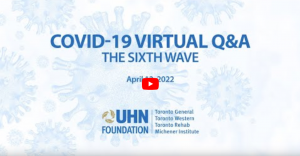
When this April 12 video from University Health Network (UHN) was broadcast, many mask mandates and public health restrictions were easing across the country, yet cases of the first and second Omicron variant of COVID-19 were accelerating through the population. Fortunately, hospitalizations and deaths were not as rampant.
Although case numbers are difficult to pin down, with testing restrictions in many provinces, waste water levels indicate that COVID-19 is still very much with us. While we are likely still in a “Sixth Wave,” it appears the virus in under control. Likely for two reasons: high vaccination rates and a weakening of the virus in the current variants.
This latest in a series of COVID-19 Q&A videos features Dr. Alon Vaisman, Infection Control Physician, UHN, and is moderated by Christian Cote. According to Dr. Vaisman, older adults and the immune compromised are once again at most risk of hospitalization and death during this sixth wave. This would include most of the pulmonary fibrosis community.
The best way to avoid infection is to get a fourth vaccine as soon as you are able and eligible. “Masking is still a good idea, if you need to get groceries, use transit, or go to a medical appointment, basically any time you are close to many people indoors,” says Dr. Vaisman.
If you are walking outdoors, there is almost no risk of transmission, according to Dr. Vaisman.
As for meeting up with family and friends, each person needs to assess their own risk. As the weather warms, it is safer to meet with others outdoors. Ask others about their vaccine status. And maybe ask others to take a rapid test in advance, maybe even more than once in the days before meeting, especially if they have symptoms or you plan to gather indoors. Take note that the rapid test is not as reliable in detecting the Omicron variant.
“Right now, when cases are up, there is a higher risk for seniors to travel, especially by air, rail or bus, since many people are confined together indoors. It would be prudent to wait until cases come down where you live and at your destination, you have had a fourth vaccine, and then continue to wear a mask if travelling,” says Vaisman. Remember too, that vaccines are most protective two weeks after they are administered, and then for three to six months following that time.
If you do get COVID-19, there are anti-viral medications, that can help protect you against developing serious symptoms. But, it needs to be taken within five to seven days of first getting symptoms and after a confirmed PCR test. If you are at risk of serious disease, contact your physician as soon as you have COVID-19 symptoms, so you can be tested quickly and get a prescription if it is warranted. Unfortunately, antiviral drugs can interact adversely with several other medications, so you may not be able to take it.
We are all hopeful that COVID-19 continues to become less deadly over time and that vaccines are developed to address emerging variants. We all look forward to the time when we will once again be able to interact with others in relative safely.
For more information about COVID-19 in your community, contact your local public health authority. You can find provincial contact information on the CPFF website. For more individual medical advice, please consult your primary care physician or your respiratory specialist.
CPFF seeking two new Board members
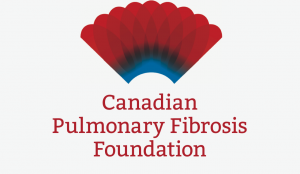
Do you have the passion, drive and skills to bring about positive change in the lives of those affected by pulmonary fibrosis? If so, consider giving your time and abilities as a member of the Board of the Canadian Pulmonary Fibrosis Foundation, a national charity.
We welcome a wide diversity of experience and backgrounds in our Board members and at this time we are specifically searching for one of our new Board members to have legal experience and knowledge.
CPFF Board members are accountable for the performance of CPFF in relation to its mission and strategic objectives and for the effective stewardship of financial and human resources. In addition to providing overall direction for the Foundation, Board members undertake specific activities related to awareness, support, advocacy and fundraising.
If you think this rewarding volunteer role may be of interest, please contact us. We would like to invite you to a board meeting (using Zoom) and provide you with the opportunity to get to know us, before making a commitment.
You are invited to submit a covering letter and a brief resume or story that tells us who you are and how you can help with the work of CPFF. Please send your information and notification of interest to [email protected] by May 15, 2022.


